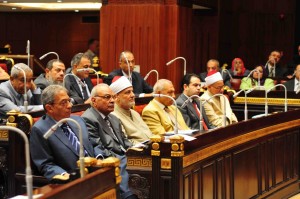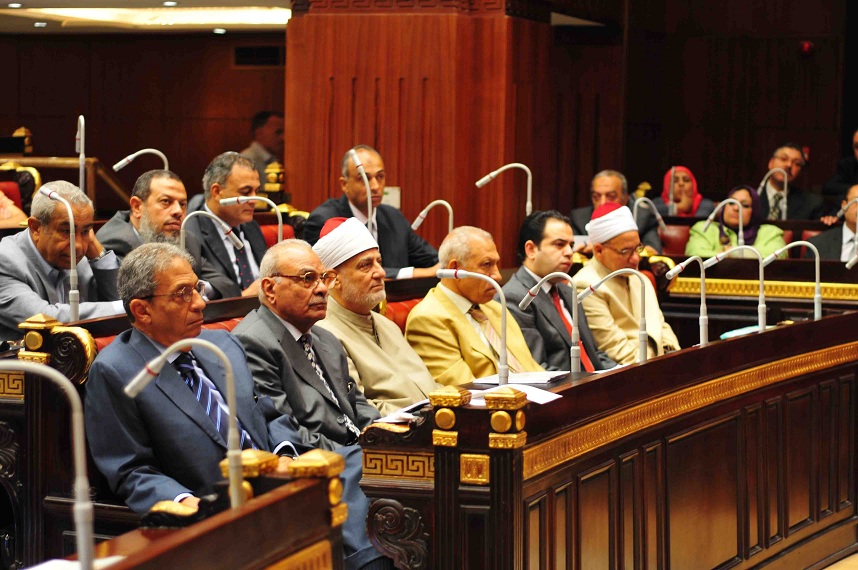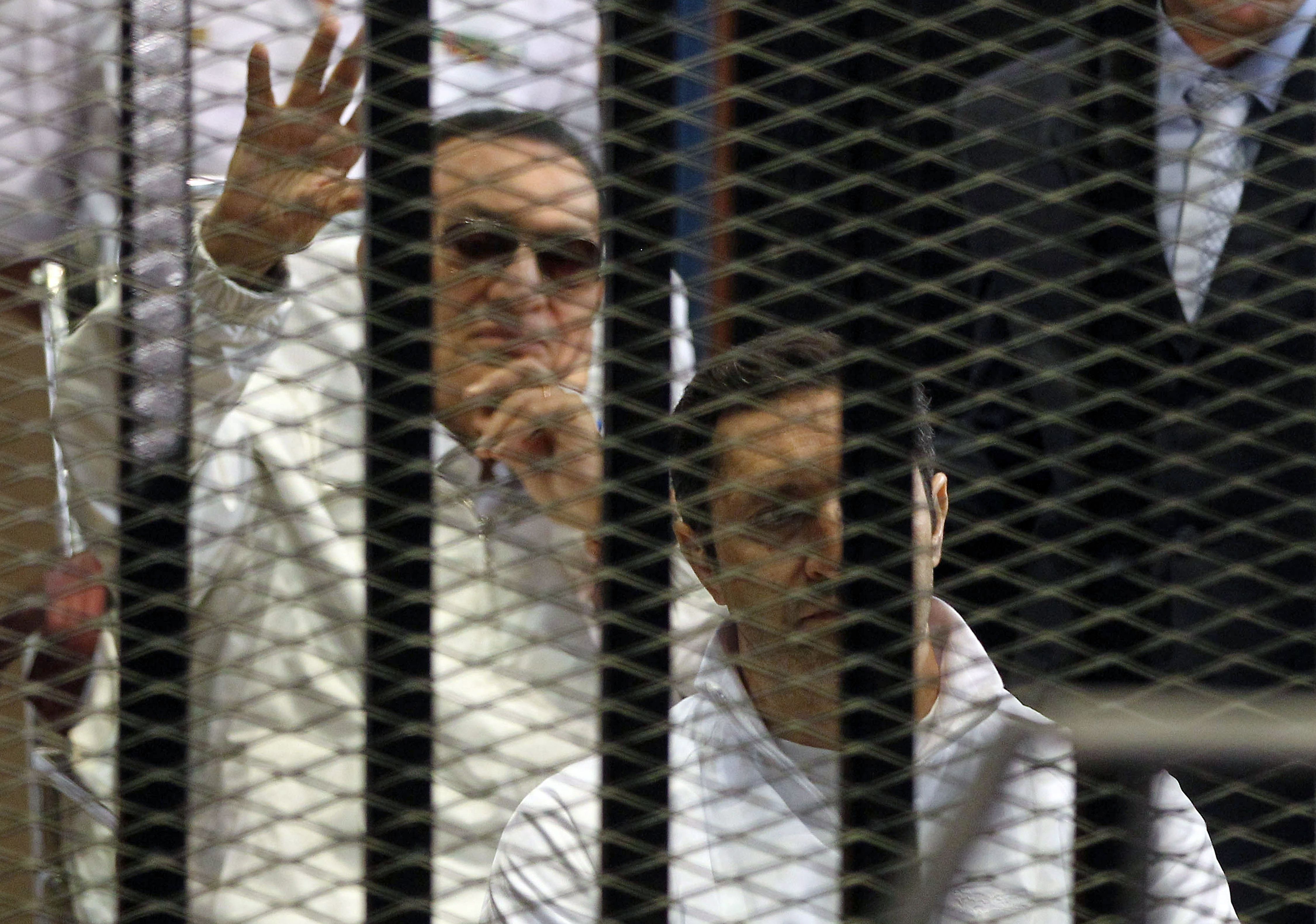
Hassan Ibrahim / DNE
The Constituent Assembly tasked with drafting Egypt’s new constitution on Tuesday voted in a ten member advisory committee to review constitutional articles produced by the assembly’s drafting committee.
The committee, which has no voting privileges of its own, is composed of constitutional experts Soad El-Sharkawy, Maged El-Helw and Tharwat Badawi.
It also has in its membership Islamic thinker Ahmed Kamal Abu El-Magd, political science Professor Hassan Nafaa, Nasserist Journalist Hamdy Qandil, liberal novelist Alaa El-Aswany, political science professor Heba Raouf Ezzat and political analyst Mohamed El-Saeed Idris.
The assembly also appointed three more spokespersons in addition to its official spokesperson Wahid Abd El-Meguid to combat what assembly chairman Hossam El-Gheriany called an “organised campaign against the assembly in the media.”
The new spokespersons are Muslim Brotherhood leader and Freedom and Justice Party Cairo Secretary General Mohamed El-Beltagy, poet Farouk Goueda, and Civilisation Party leader Abdel Moniem El-Sawy.
Drafting committee rapporteur and Minister of State for Legal and Parliamentary Affairs Mohamed Mahsoub said the committee decided to split the constitution into six sections: basic principles; freedoms and rights; system of governance; local administration; independent and oversight bodies; and transitional and general articles.
He added that the committee had completed drafting 50 articles in the freedoms and rights section, 25 in the basic principles sections and 16 in the independent and oversight bodies section.
The assembly is still to decide on some issues that lack consensus such as the upper house of parliament, the Shura Council, and whether it should be scrapped or kept and given more powers. Gheriany announced the assembly would vote on the matter in the next weekly general meeting.
Other issues that remain unresolved include whether election laws should be included in the constitution or left up to legislators and whether to keep the 50 percent quota reserved for workers and farmers in parliamentary elections.
The assembly is yet to discuss in detail and vote on the controversial second article of the constitution which will determine if Islamic Shari’a will be applied to legislation.




